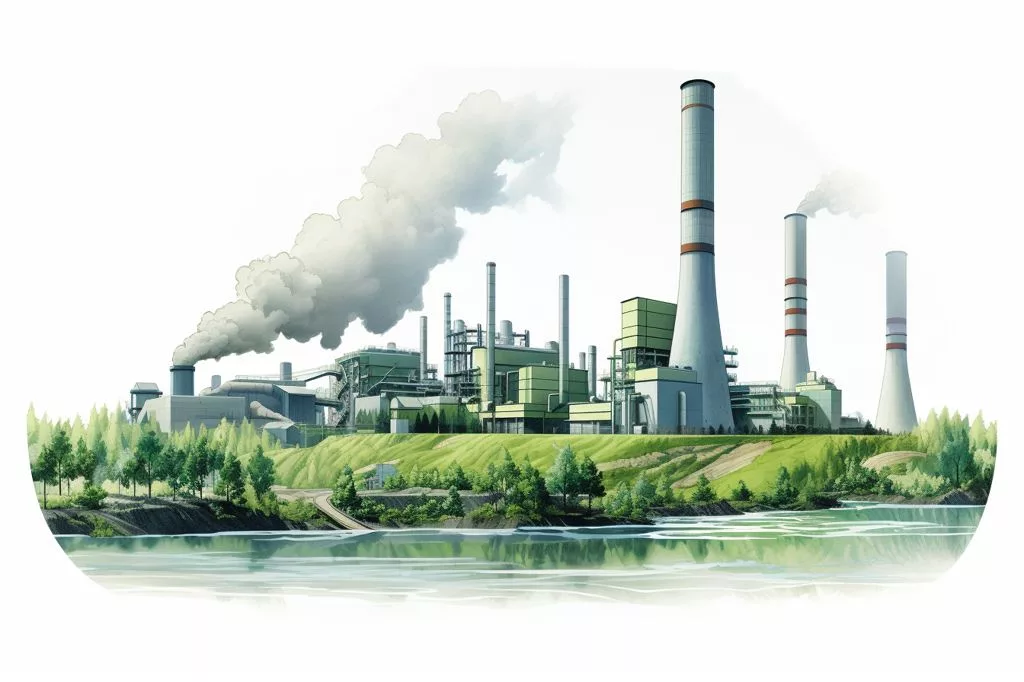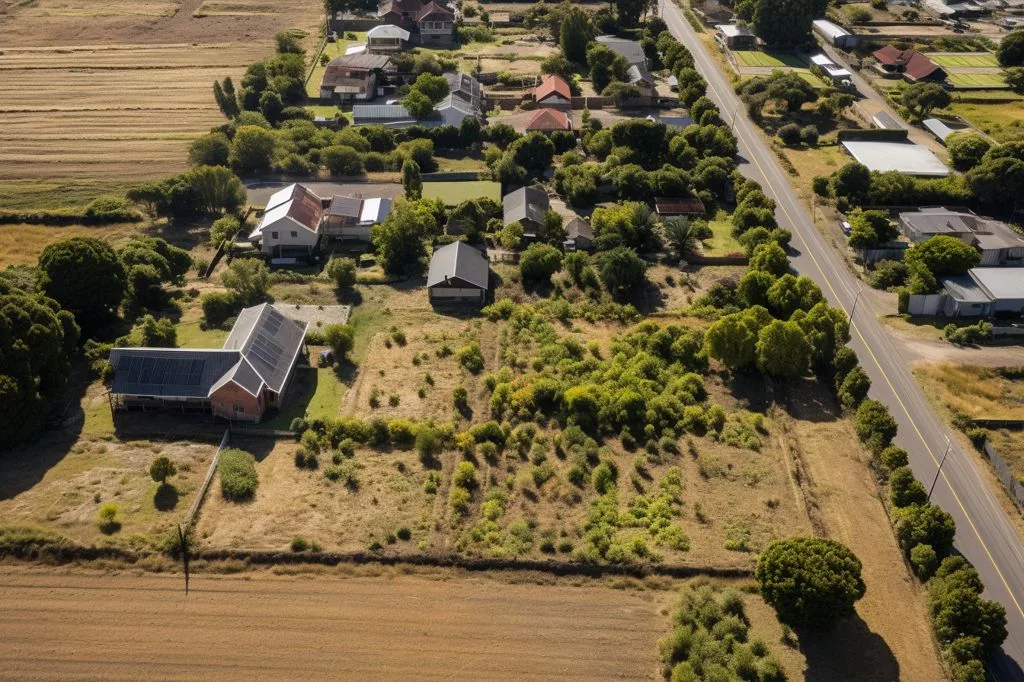The Presidential Climate Commission in South Africa is leading the decommissioning and repurposing of the Komati Power Station, a coal-fired power plant. A multi-stakeholder consultation involved local communities, businesses, environmental groups, and government officials to discuss the practical, logistical, social, and economic challenges of the transformation. The decommissioning and repurposing process will create new job opportunities in the renewable energy sector and utilize existing infrastructure for new renewable energy projects, helping South Africa transition to a sustainable energy mix.
What is the Presidential Climate Commission in South Africa doing about the decommissioning of Komati Power Station?
The Presidential Climate Commission (PCC) organized a multi-stakeholder consultation to discuss recommendations on the decommissioning and repurposing process of the coal-fired Komati Power Station. The consultation recognized the practical, logistical, social, and economic challenges of the transformation and involved local communities, businesses, environmental groups, and government officials. The decommissioning and repurposing process will create new job opportunities in the renewable energy sector and utilize existing infrastructure for new renewable energy projects, expediting South Africa’s transition to a sustainable energy mix.
As countries worldwide strive to combat climate change and transition to green energy, South Africa’s Presidential Climate Commission (PCC) is making significant strides in addressing these global issues. One key initiative is the decommissioning and repurposing of the Komati Power Station, a coal-fired power plant located in the Nkangala District.
Multi-Stakeholder Consultation on Decommissioning and Repurposing
On October 27, 2023, the PCC organized a multi-stakeholder community consultation in the Nkangala District and Tshwete Municipality to share and discuss an interim report and recommendations on the decommissioning and repurposing process. This vital meeting succeeded the PCC’s initial submissions and an oversight visit on July 7 earlier that year to Eskom Komati Power Station.
The PCC’s objective is to gain insights from the decommissioning and repurposing process, comprehend its complexities, and offer recommendations for a seamless transition. This consultation emerged from the 11th commission’s quarterly meeting on September 29, where it was resolved to involve various stakeholders to address gaps and enhance the interim report.
Komati Power Station: From Industrial Symbol to Green Future
Once emblematic of South Africa’s industrial expansion, the Komati Power Station now plays a central role in the country’s progression towards a sustainable future. For decades, the plant has supplied electricity to numerous communities. Nevertheless, as the global focus shifts to renewable energy, the Komati Power Station is due for a transformation.
The PCC’s engagement with stakeholders not only recognizes the practical and logistical challenges in decommissioning and repurposing a power plant, but also underscores the social and economic ramifications of such an undertaking. Attendees included representatives from local communities, business owners, environmental groups, and government officials, ensuring all viewpoints were considered and potential challenges recognized.
Adopting a participatory and collaborative approach is essential for the long-term success of the repurposing process. As the world confronts the repercussions of climate change, South Africa is emerging as a leader in transitioning to a greener future. The PCC’s consultation demonstrates the government’s dedication to involving various stakeholders in the decision-making processes that affect the nation’s environment and citizens.
Economic and Environmental Opportunities
The transformation of the Komati Power Station will have considerable implications for the local economy by creating new job opportunities in the renewable energy sector. In this context, the PCC’s consultation with stakeholders serves as a forum for discussing workforce retraining and skills development strategies. The focus on a just transition ensures that communities dependent on the coal industry are not left behind in the shift towards a greener economy.
Additionally, the decommissioning and repurposing process presents an opportunity to utilize existing infrastructure, such as transmission lines and substations, for new renewable energy projects. This strategy not only minimizes waste but also lowers entry barriers for new renewable projects, expediting South Africa’s transition to a sustainable energy mix.
In recent years, South Africa has demonstrated a strong commitment to mitigating climate change and adopting a green economy. The country has led renewable energy investments in Africa, with ambitious goals to reduce greenhouse gas emissions by 2030. The PCC’s multi-stakeholder consultation on the Komati Power Station signifies a turning point in this journey, showcasing the government’s commitment to involving communities and stakeholders in crucial decisions that will shape the nation’s future.
As the international community progresses towards a low-carbon and sustainable future, South Africa’s efforts to transition from coal-fired power plants to renewable energy sources serve as a beacon of hope. The Presidential Climate Commission’s consultation on the Komati Power Station exemplifies how a country can foster cooperation and unity in the quest for a better, greener world.
Through dialogue, collaboration, and consultation, the Presidential Climate Commission tirelessly pursues a greener future for South Africa, ensuring the nation remains at the forefront of the battle against climate change.
1. What is the Presidential Climate Commission in South Africa doing about the decommissioning of Komati Power Station?
The Presidential Climate Commission (PCC) organized a multi-stakeholder consultation to discuss recommendations on the decommissioning and repurposing process of the coal-fired Komati Power Station. The consultation recognized the practical, logistical, social, and economic challenges of the transformation and involved local communities, businesses, environmental groups, and government officials. The decommissioning and repurposing process will create new job opportunities in the renewable energy sector and utilize existing infrastructure for new renewable energy projects, expediting South Africa’s transition to a sustainable energy mix.
2. What is the Komati Power Station, and why is it being decommissioned?
The Komati Power Station is a coal-fired power plant located in the Nkangala District in South Africa. The power plant has supplied electricity to numerous communities for decades, but as the global focus shifts to renewable energy, the plant is due for a transformation. The decommissioning and repurposing of the plant will create new job opportunities in the renewable energy sector and utilize existing infrastructure for new renewable energy projects, expediting South Africa’s transition to a sustainable energy mix.
3. Why is the PCC engaging with stakeholders, and who are these stakeholders?
The PCC is engaging with stakeholders as part of a participatory and collaborative approach to the decommissioning and repurposing process of the Komati Power Station. Stakeholders involved in the consultation included representatives from local communities, business owners, environmental groups, and government officials. This approach ensures that all viewpoints are considered and potential challenges recognized, leading to a more seamless transition.
4. What are the economic benefits of repurposing the Komati Power Station?
The repurposing of the Komati Power Station will have considerable implications for the local economy by creating new job opportunities in the renewable energy sector. The PCC’s consultation with stakeholders serves as a forum for discussing workforce retraining and skills development strategies. Additionally, the decommissioning and repurposing process presents an opportunity to utilize existing infrastructure, such as transmission lines and substations, for new renewable energy projects. This strategy not only minimizes waste but also lowers entry barriers for new renewable projects, expediting South Africa’s transition to a sustainable energy mix.
5. What are the environmental benefits of repurposing the Komati Power Station?
Repurposing the Komati Power Station will reduce greenhouse gas emissions, helping to combat climate change. The transition from coal-fired power plants to renewable energy sources serves as a beacon of hope in the quest for a low-carbon and sustainable future. The utilization of existing infrastructure for new renewable energy projects also minimizes waste and contributes to a more sustainable energy mix.
6. What is the PCC’s objective in the decommissioning and repurposing process of the Komati Power Station?
The PCC’s objective is to gain insights from the decommissioning and repurposing process, comprehend its complexities, and offer recommendations for a seamless transition. The multi-stakeholder consultation involved representatives from local communities, business owners, environmental groups, and government officials, ensuring all viewpoints were considered and potential challenges recognized.
7. What is a just transition, and why is it important in the repurposing of the Komati Power Station?
A just transition ensures that communities dependent on the coal industry are not left behind in the shift towards a greener economy. The PCC’s consultation with stakeholders serves as a forum for discussing workforce retraining and skills development strategies, ensuring that communities are not adversely affected by the decommissioning and repurposing process.
8. How is South Africa demonstrating its commitment to mitigating climate change and adopting a green economy?
South Africa has demonstrated a strong commitment to mitigating climate change and adopting a green economy in recent years. The country has led renewable energy investments in Africa, with ambitious goals to reduce greenhouse gas emissions by 2030. The PCC’s multi-stakeholder consultation on the Komati Power Station signifies a turning point in this journey, showcasing the government’s commitment to involving communities and stakeholders in crucial decisions that will shape the nation’s future.








